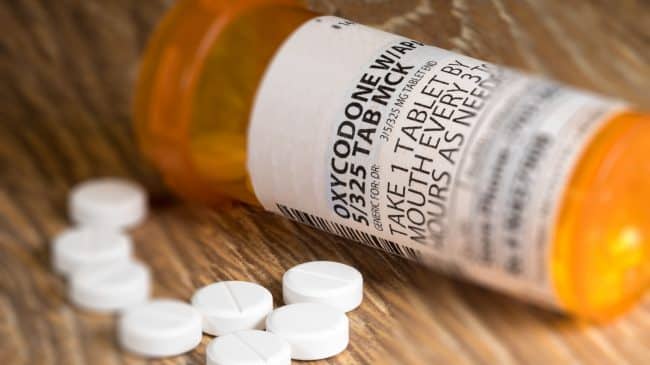Bfore leaving office, Florida Attorney General Pam Bondi charged CVS and Walgreens, the nation’s two largest pharmacy chains, with racketeering and distributing “unreasonable quantities of opioids from their pharmacies.” In November, Bondi added the companies to Florida’s massive lawsuit against numerous makers and sellers of pain medications, charging them with allegedly “unconscionable efforts to increase the demand and supply of opioids into Florida.”
Unfortunately, Bondi misdiagnosed both the problem and the solution. And new state Attorney General Ashley Moody seems determined to continue these mistakes.
“I will continue the lawsuit brought by Attorney General Bondi against opioid manufacturers and distributors to curb abuse and recover costs to Florida,” Moody wrote before last November’s election. “We must hold accountable those responsible without regard to whether it is an individual doctor knowingly and wrongfully prescribing drugs or some of the largest companies in the world engaged in the conduct described in the complaint.”
Opioid overdoses and deaths have been rising and there’s nearly universal agreement that something needs to be done. But Bondi and Moody scapegoating doctors, pharmacies and pharmaceutical companies is neither accurate nor sensible.
The state’s lawsuit suggests drug companies tricked doctors into overprescribing opioids and that pharmacies knowingly dispensed more opioids than was necessary, which led to addictions and overdoses. In reality, over 99 percent of patients who receive prescriptions for pain relief medications don’t abuse them. These are people experiencing real pain from accidents and ailments. Nationally each year, three million people are injured in car accidents, two million are seriously injured at work, 20 million veterans are suffering chronic pain, and America’s aging population is battling a variety of ailments, including cancer. Drug companies, doctors, and pharmacies are overwhelmingly serving those people, not targeting the small percentage of users who abuse pain medications.
The Substance Abuse and Mental Health Services Administration (SAMHSA) finds that prescription drug abuse has been falling for years. About five percent of Floridians abused prescription drugs in 2002 but that number fell to three percent in 2014. It’s also important to note that in Florida, opioid prescriptions have decreased by 30 percent since their peak in 2010. But restricting prescriptions has not been effective in reducing opioid overdoses, which have increased by over 73 percent since 2010. In fact, restrictions on prescriptions likely made overdose rates worse. During the peak period of prescriptions being written, prescription abuse was actually at a record low. But after the mandated decrease in opioid prescriptions, some people who previously received opioids from their pharmacists lost their prescriptions and turned to the black market where drugs are much less safe.
For example, black market-produced fentanyl, a synthetic opioid up to 100 times stronger than morphine and much more dangerous to consume than pharmaceutical-grade painkillers, is now the leading cause of drug overdoses. As drug overdoses increased in Florida, illegally-produced fentanyl and heroin went from causing 11 percent of opioid overdoses in 2010 to causing almost 75 percent of opioid overdoses by 2017.
The lawsuit Bondi filed also claims, “Opioids killed 5,725 Floridians in 2016.” That’s false. The Centers for Disease Control and Prevention report opioids caused 2,798 overdose deaths in Florida in 2016. The 5,725 figure includes people who happened to have opioids in their systems when they died of other causes.
Attorney General Moody said she wants to confront the opioid problem with a “targeted, data-backed approach, focusing on law enforcement, addiction, and education.” If that’s the case, Moody should ditch the lawsuit because Florida’s pain patients and sufferers are better off working with legitimate doctors and pharmacists than with black market drug cartels.


